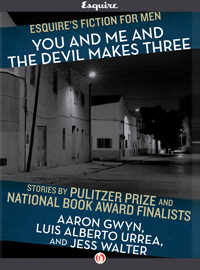The Grand Design by Stephen Hawking and Leonard Mlodinow
 Friday, June 22, 2012 at 2:20PM
Friday, June 22, 2012 at 2:20PM 
First published in 2010; Bantam edition published February 21, 2012
Is philosophy dead? Stephen Hawking thinks it is. In his view, philosophy hasn't kept pace with science. According to Hawking, the ability to answer the big questions in life -- why we exist, why there is something rather than nothing -- resides in physics rather than philosophy (sort of an odd position, given the extent to which he creates a science-based philosophy in the concluding chapters). Together with his coauthor, Hawking suggests the answers to those questions in a short but surprisingly readable book that I, as a nonscientist, almost convinced myself I understood.
If Hawking's mind is a sleek and speedy Ferrari, mine is a rusty tricycle with wobbly wheels. It is to Hawking's credit that he can explain quantum mechanics in such simple terms that I can fleetingly grasp his meaning. As Hawking says, "The quantum model of nature encompasses principles that contradict not only our everyday experience but our intuitive concept of reality." No matter how often I read about these principles, I never quite grasp them, but Hawking nonetheless came close to rewiring my brain with his patient explanations. Hawking's writing is full of wit, yet Hawking is a serious thinker and The Grand Design is filled with serious thought. His brief discussions of complex questions are insightful despite their abbreviated nature.
Most of the early chapters include a brief history of science with special attention to physics. Demonstrating his ability to pack an enormous amount of information into a compact volume, Hawking tells the reader a bit about the backgrounds and eccentricities of these scientists, whose groundbreaking work he obviously admires. Admiration doesn't stop Hawking from being a critic; he repeatedly illustrates the unfortunate truth that scientists often become wedded to a theory and will postulate all sorts of fanciful explanations for experimental data that contradict the theory rather than abandoning it.
The most interesting chapter to me addresses a puzzling question: Is there such a thing as objective reality? I hope we are not all living in The Matrix, but Hawking argues that there "is no picture- or theory-independent concept of reality." There are only models of reality, and the model that currently fits best with our observations is the one we choose to call reality. Different models of reality might be equally valid under different conditions, a notion that rejects the concept of an "objective" reality.
Despite Hawking's skill at explaining difficult concepts in simple terms, I became totally lost (as I always do) when, in chapter 5, he explained the difficulty of creating a Grand Unified Theory that would explain each of the four forces of nature (or however many there might turn out to be) as components of a single law. Once the discussion turns to quarks and Feynman diagrams and virtual particles, not to mention M-theory (the current best model of the grand design), I feel myself sinking into a very deep bog. That isn't Hawking's fault, and readers who are more adept at wrapping their minds around abstract notions will derive more from the text than I did.
I felt slightly less lost reading Hawking's explanation of the origin of the universe, despite the troubling notion that it is meaningless to ask what happened before the universe began because time did not exist (and "before" did not exist) until the universe originated in a quantum event. Hawking's deft use of analogy makes it possible to visualize the complex theories he's explaining. I was back on solid ground with chapter 6, where Hawking turns his attention to the philosophical implications of the quantum principles he discusses in earlier chapters (it's easier, for me at least, to be an armchair philosopher than an amateur physicist). In chapters 7 and 8, Hawking discusses the likelihood of life originating on Earth (and perhaps elsewhere in the universe and perhaps in other universes, as well) given the unique set of environmental conditions and physical laws that make life possible, providing a thoughtful and effective refutation of the notion (developed at length in Robert Sawyer's Calculating God) that a divine guiding hand must have intelligently designed those laws and conditions.
I wish I had the sort of mind that intuitively grasped the principles of quantum mechanics that underlie The Grand Design, but for readers like me who are better with words than math and more at home with novels than physics textbooks, Hawking's book is a wonderful resource. For physicists and others who have made an extensive study of the book's subject matter, The Grand Design is probably too simplistic, more an overview of current thought than a groundbreaking treatise. Physicists clearly are not part of Hawking's target audience, but I am, and I can recommend this book to those who are as unschooled as I am. Philosophy might be dead, but ideas are not, and The Grand Design is filled with them.
RECOMMENDED
 TChris |
TChris |  Post a Comment |
Post a Comment |  Stephen Hawking in
Stephen Hawking in  Nonfiction
Nonfiction 


